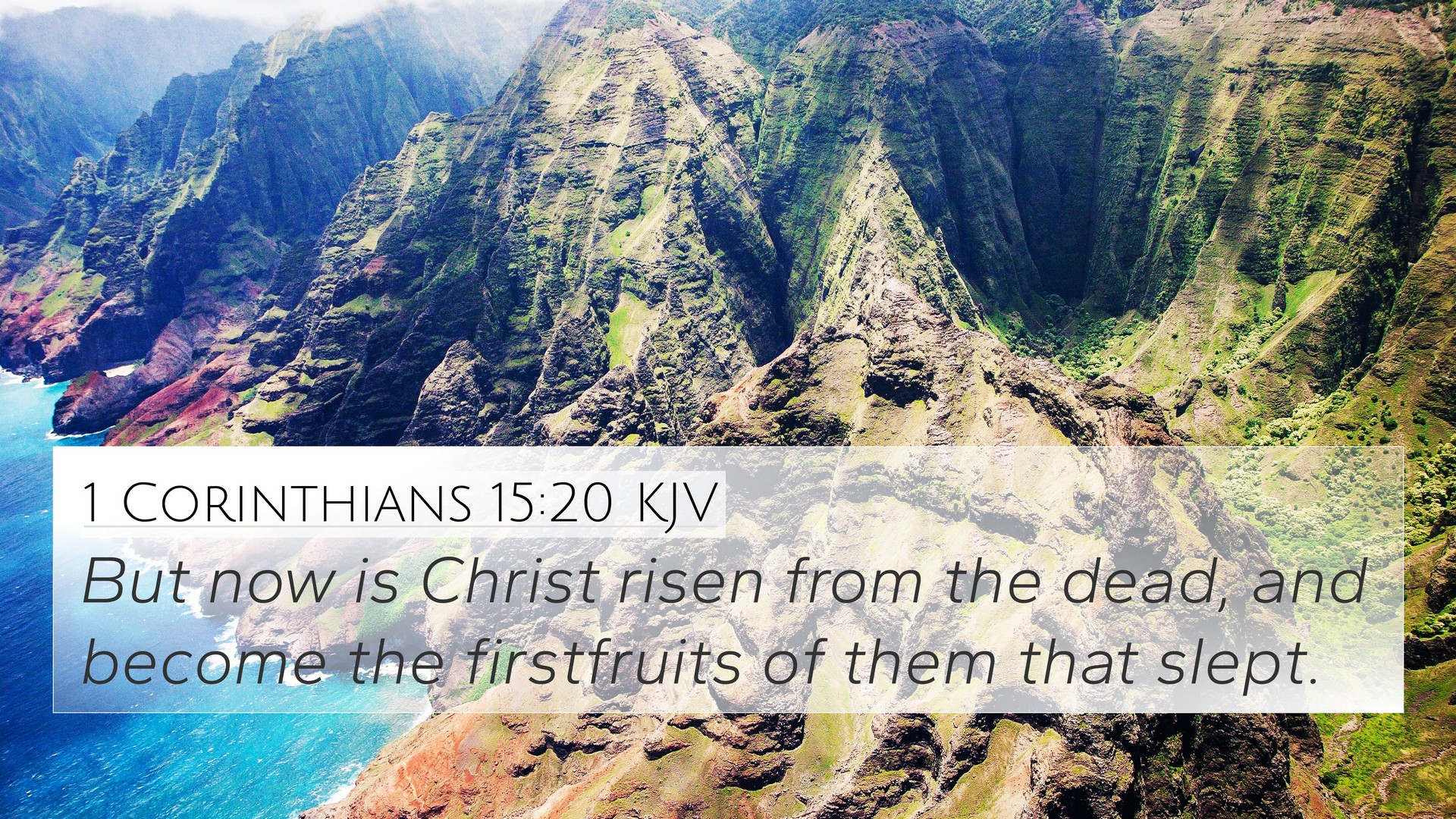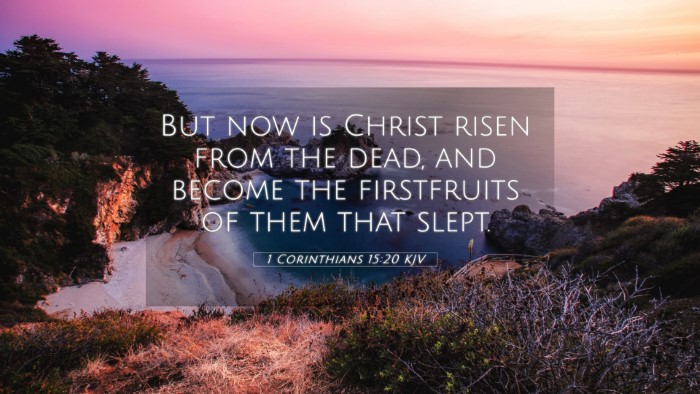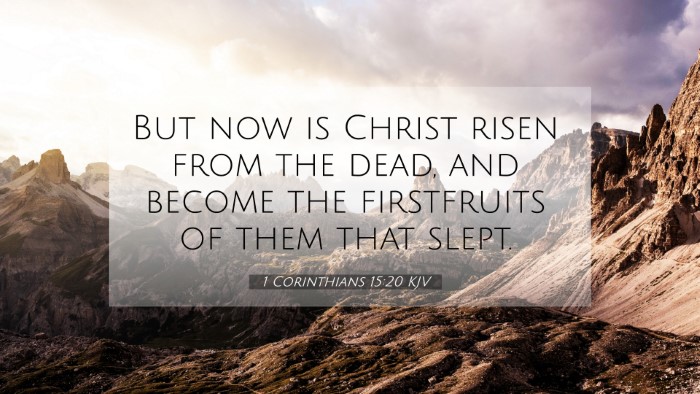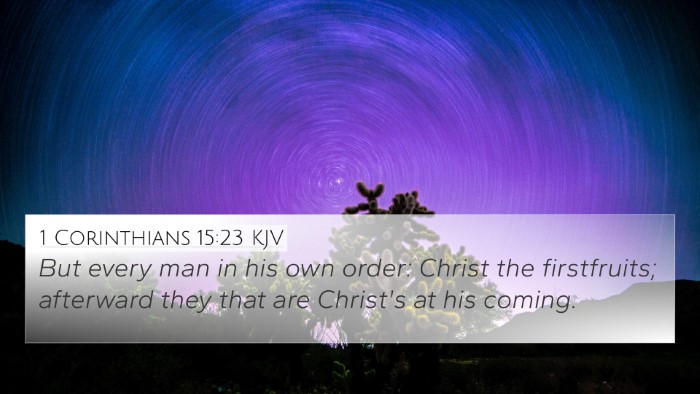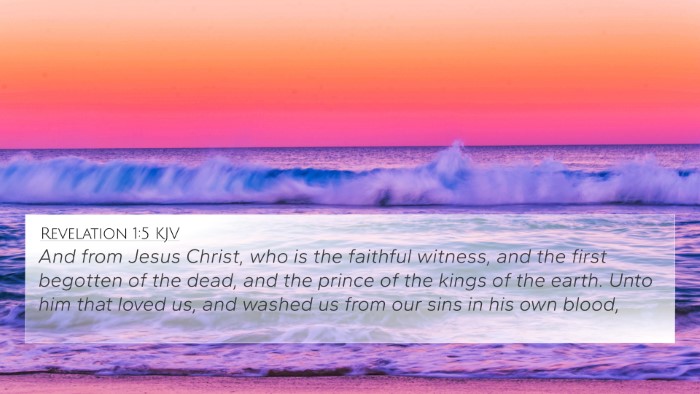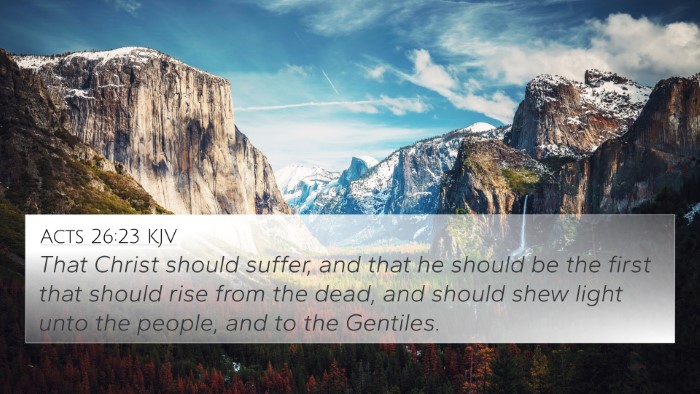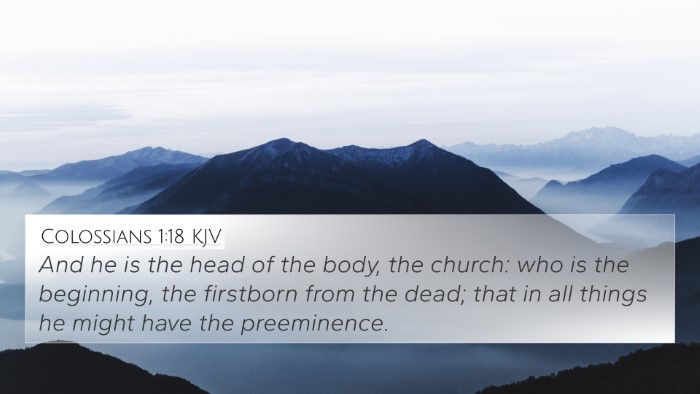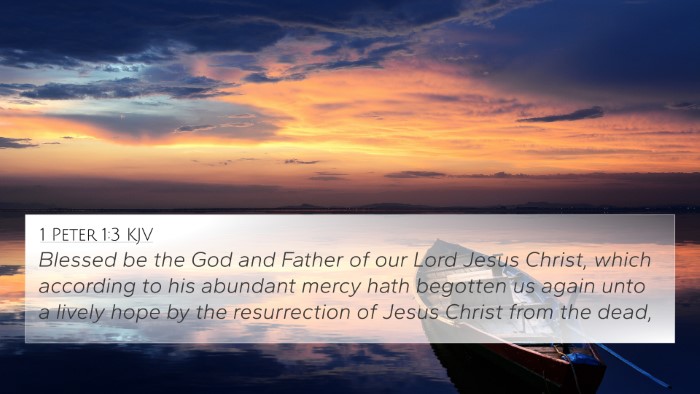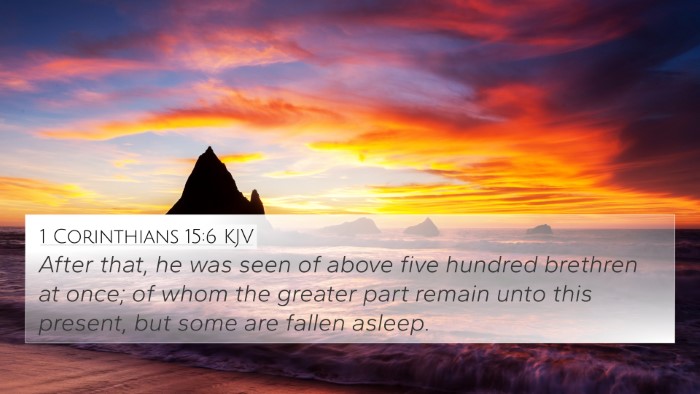Understanding 1 Corinthians 15:20
Verse: "But now is Christ risen from the dead, and become the firstfruits of them that slept." - 1 Corinthians 15:20 (KJV)
This verse is a pivotal declaration within the Apostle Paul's discourse on resurrection, highlighting the significance of Christ's victory over death and its implications for believers.
Summary of Meaning
In 1 Corinthians 15:20, Paul asserts the reality of Christ's resurrection, emphasizing that He is the "firstfruits" of those who have died. This concept of firstfruits carries rich agricultural imagery, indicating that Christ's resurrection is not just an isolated event but the initial guarantee of a greater harvest to come. The implications of this declaration spread throughout the New Testament, creating a profound inter-Biblical dialogue regarding resurrection and eternal life.
Thematic Bible Verse Connections
- Romans 8:23: "And not only they, but ourselves also, which have the firstfruits of the Spirit, even we ourselves groan within ourselves, waiting for the adoption, to wit, the redemption of our body." This verse links the idea of firstfruits to the believers' hope in resurrection.
- 1 Thessalonians 4:14: "For if we believe that Jesus died and rose again, even so them also which sleep in Jesus will God bring with him." Paul's assurance connects back to Christ being the firstborn of the dead.
- Colossians 1:18: "And he is the head of the body, the church: who is the beginning, the firstborn from the dead; that in all things he might have the preeminence." This verse also affirms Christ as the preeminent figure in resurrection.
- Revelation 1:5: "And from Jesus Christ, who is the faithful witness, and the first begotten of the dead, and the prince of the kings of the earth." This reinforces Christ's resurrection status.
- John 11:25-26: "Jesus said unto her, I am the resurrection, and the life: he that believeth in me, though he were dead, yet shall he live." Here, Jesus indicates the authority of his resurrection over all who believe.
- Philippians 3:20-21: "For our conversation is in heaven; from whence also we look for the Savior, the Lord Jesus Christ: Who shall change our vile body, that it may be fashioned like unto his glorious body." This references the transformative effect of Christ’s resurrection on believers' future resurrection.
- Luke 24:46: "And said unto them, Thus it is written, and thus it behoved Christ to suffer, and to rise from the dead the third day." This ties the prophetic nature of resurrection to its fulfillment in Christ.
Comparative Bible Verse Analysis
The message of 1 Corinthians 15:20 connects seamlessly with the overarching narrative of salvation throughout the Scriptures. The resurrection serves as a cornerstone of Christian faith and assures believers of their future hope.
Matthew Henry comments on the confirmation of resurrection as the foundation for the Christian hope, while Albert Barnes elucidates that, in context, Paul's discourse aims to reassess and reinforce the faith of the Corinthians who wavered in belief regarding future resurrection. Adam Clarke emphasizes the confident declaration that Christ's resurrection guarantees the eventual resurrection of all who are united with Him.
Inter-Biblical Dialogue
This verse sparks an important conversation between the Old and New Testament texts. The promise of resurrection can be traced back to a few key Old Testament passages which inform New Testament understanding.
- Job 19:25-26: Job's affirmation of seeing God after death reveals early hope in resurrection.
- Isaiah 26:19: "Thy dead men shall live, together with my dead body shall they arise." This Old Testament promise is fulfilled in Christ.
- Daniel 12:2: “And many of them that sleep in the dust of the earth shall awake, some to everlasting life, and some to shame and everlasting contempt.” This speaks to the resurrection hope that Paul builds upon.
Conclusion
1 Corinthians 15:20 stands as a central tenet of Christian doctrine, reverberating with hope and assurance of life after death. It not only asserts Christ as the risen Savior but also as the firstfruits, providing the foundation for believers' hope in their own resurrection. The cross-references highlight the connections that exist throughout Scripture, providing a robust framework for understanding the continuity and consistency of the resurrection theme across both testaments.
Utilizing tools for Bible cross-referencing enhances the study of such pivotal verses. By examining interconnections, one can gain a deeper understanding of biblical themes and concepts which weave through the texts and reveal God’s comprehensive plan of salvation.
